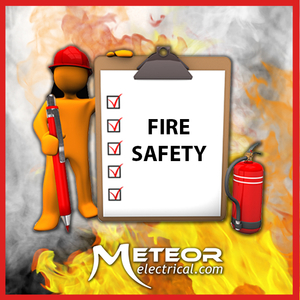How To Avoid Electrical Fires In Your Home
How To Avoid Electrical Fires In Your Home
Electrical faults are not solely to blame for fires, human error often plays a factor also. Whether it is a product left on or sub-standard wiring, we all need to take more caution.
Electricity is a major cause of accidental fires in UK homes, approximately over 20,000 each year, while nine out of 10 electrical fires are caused by electrical products.
We use electricity every day but it can be dangerous and should be treated with respect. Below is a list of Do’s and Don’ts you should follow to help ensure that your home is protected from electrical fires.
Do
- Check the condition of your wiring, this should be done when you move into a new home and then once every 10 years. It’s the landlord’s responsibility if you rent your home. Ask to see a copy of the certificate or report confirming that the electrics meet the UK national standard BS 7671 (Requirements for Electrical Installations).
- Check your sockets regularly, if they feel hot or have burn marks, get a registered electrician to check them.
- Turn off any electrical equipment you are not using, especially at night, when a fire can spread quickly while you sleep.
- Regularly check flexible cables on kettles and other similar appliances. Look for signs of wearing or a loose plug.
- Be careful when using hand-held electrical equipment. Ensure that when you have finished using these items, they are switched off and unplugged. This is important with items that emit heat, for example hairdryers or curling tongs, as they may come into contact with materials that can catch fire (eg. bed sheets).
- Check the current rating of an electrical adaptor before you connect your appliances. Make sure that the total current used does not exceed the adaptor’s rating.
Don't
- Overload any adaptor or socket, especially with appliances that have a high electrical current such as kettles, irons or heaters. If needed, install extra sockets to ensure maximum safety.
- Put electric heaters near curtains or furniture. Do not dry clothes on them as this can be extremely dangerous.
- Cover the air vents on storage heaters or fan heaters.
- Trail flexible cables under carpets or rugs.
- Exceed the wattage of the light fitting or lampshade with the bulb you use.
View our Fire and Saftey section today, to find all the products you need to secure your home from fires.

